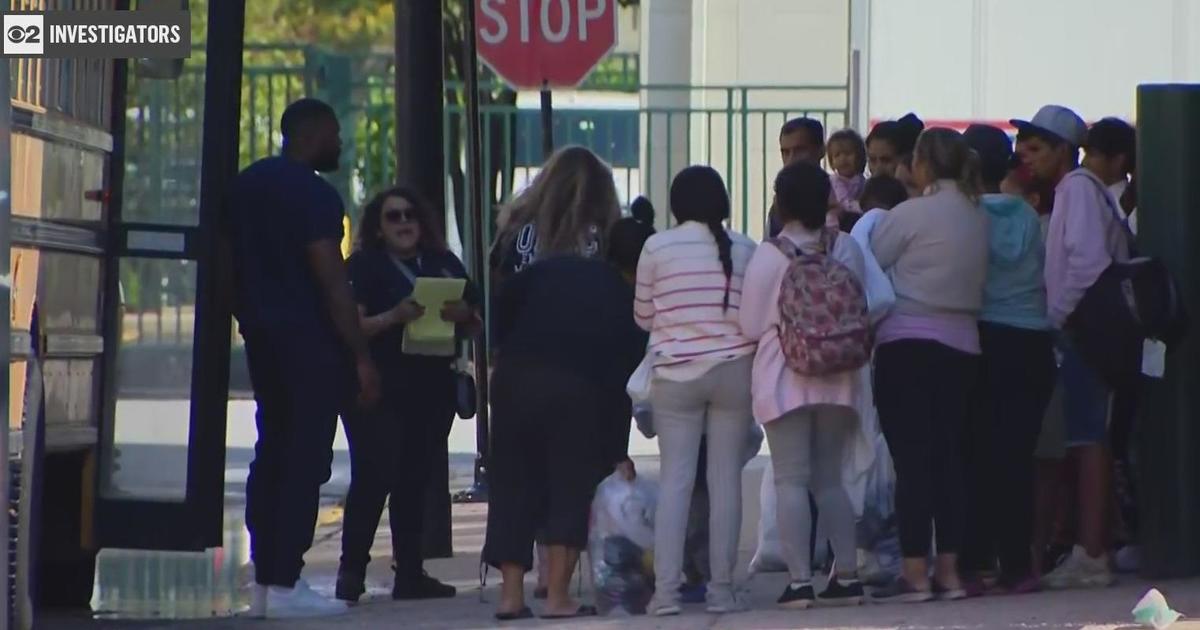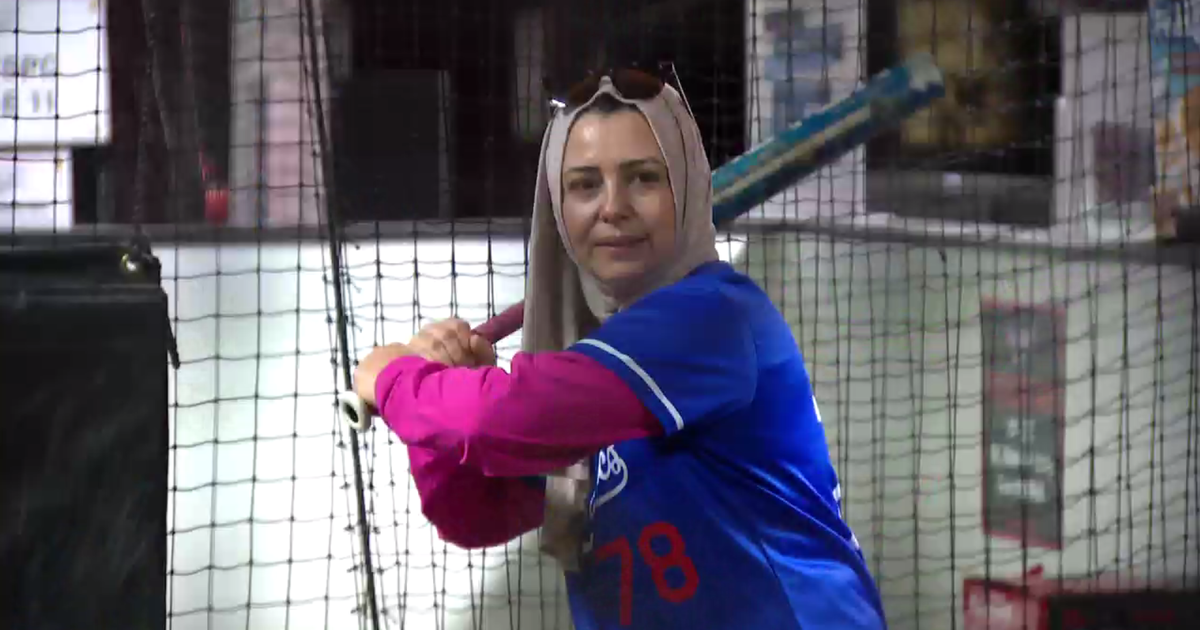Benefits Cut For Chicago-Area Hospital Workers Because Of COVID-19
CHICAGO (CBS) -- It doesn't seem fair, but it's true.
In the fallout of the COVID-19 crisis, front line health workers are seeing their benefits cut back at hospitals throughout the state.
CBS 2's Vince Gerasole reports from one of the latest hospitals to announce the cutbacks, Northwestern Memorial.
Staff learned this week about losses in vacation, retirement fund matches and raises. The explanation: revenues down from non-essential procedures put on hold and costs rising from fighting COVID-19.
But bearing the brunt are many of the workers who are still battling on the front lines.
"It was shocking to me to be treated this way."
That's a Northwestern physician's assistant who asked CBS 2 to mask her identity. This after getting word of significant cutbacks system-wide; fallout from the COVID-19 pandemic.
"I felt unappreciated after months of having put myself out there," said the physician's assistant.
In an email, staff learned leadership was taking a 20% pay cut. But those on the front lines of healthcare are also impacted, with scaled back vacation time, 401K matches eliminated and raises put on hold.
"I can only imagine how the people working in the emergency room and ICUs must feel," said the physician's assistant.
Northwestern is not alone. Lurie Children's Hospital has instituted unpaid furloughs, eliminated merit raises, and placed a freeze on hiring. Leadership has also taken pay cuts.
"These decisions are hard decisions and are not taken lightly," said Danny Chun of the Illinois Health and Hospital Association.
The trend continues in suburban hospitals too.
At Edward-Elmhurst Health, they have furloughed staff and are cutting back 401K matches next month. The system estimates it lost $41.9 million in the first two months of the pandemic alone.
"Hospitals have absorbed more than $1.4 billion a month in losses," Chun added.
That's in this state alone according to Danny Chun of the Illinois Health and Hospital Association. COVID-19 forced hospitals to cancel revenue generating procedures. Not all hospitals, especially small and rural ones, were prepared.
"More than 40% of hospitals across the state were either losing money or barely surviving financially," Chun added.
Before COVID-19 cutbacks, the top administrator at Northwestern was compensated over $7 million annually. The previous administrator at Lurie Children's made $2.3 million, but he has since retired and the hospital said his successor makes less.
"It's disappointing to feel this way working at a premiere hospital," lamented the physician's assistant.
Some staff said that level of leadership should have the system better prepared to weather an economic downturn, especially when they are putting their lives on the line for others.
The following hospitals released statements on the cutbacks for healthcare workers and staff:
Northwestern Memorial:
We are not immune to the financial challenges that the COVID-19 pandemic has imposed on health systems around the country. We have chosen to reduce specific expenses that impact all staff, but are proportional to position and wage to preserves jobs and to prevent any impact on our ability to deliver high-quality, compassionate care. In addition, senior management compensation has been reduced by up to 20 percent. These decisions are never easy, but we believe necessary. We are grateful for the extraordinary work of the entire Northwestern Medicine team to provide and support the care of patients across the communities we are privileged to serve.
NorthShore University HealthSystem:
Due to the extraordinary challenges COVID-19 has presented, including significant operational limitations, we've made workforce adjustments to align with our patient needs and help protect the financial stability of the organization. As part of these efforts, we've implemented salary reductions of up to 35% for executive and senior management positions. Additionally, we've suspended company contributions to employee retirement accounts and introduced temporary furloughs for certain employees. We firmly believe that taking these difficult steps will position us favorably as we expect recovery efforts to strengthen over the summer. Our goal is to reemerge a stronger organization so that we may continue serving our communities with the same level of innovation, service and quality they deserve. Given the evolving nature of the pandemic, we continue to evaluate these decisions and make changes as appropriate.
University of Chicago:
Things are looking better and better everyday, as our hospital continues to see an increasing number of patients via virtual visits or in person, which is terrific news that people aren't delaying necessary care. In fact, we are consistently seeing surgery volumes that are 100% or greater than pre-COVID levels. Hopefully, this city won't have a resurgence in COVID infections!
Advocate Aurora Health:
We've expanded team member offerings including child care stipends, lodging accommodations, Special COVID pay, PTO flexibility, team member bonuses and mental health and wellness resources. We've paused some capital construction projects, and our CEO and other senior leaders took salary reductions. While our furloughed team members have been paid in full for the majority of the pandemic, over the last few weeks we have begun to decrease pay for non-worked hours with the opportunity for those team members to remain whole with expanded PTO options.
Northwest Community Hospital:
We are all in this together. The changes include the following:
- CEO's base pay will be reduced by 20%. Executive Vice Presidents' base pay will be reduced by 14%. Vice Presidents' base pay will be reduced by 12%.
- Managers, directors and executive directors' base pay will be reduced by 10%.
- Salaried/exempt employees' pay will be reduced by 6%.
- Hourly, non-exempt administrative employees work schedules will be reduced by 6% per pay period.
- The NCH match to employees' 401k contribution is removed through September 30, 2020. There will be no changes to other benefits, including health insurance.
- All raises and compensation adjustments are deferred through the fiscal year, with one important exception:
- We are implementing a specific compensation for employees on units or areas managing COVID patients. These employees will receive their annual merit increases, any step adjustments and an increase in hourly rate of 1 to 2.5%.
- We are limiting all discretionary spending and limiting capital spending to only what is necessary.
Lurie Children's:
Lurie Children's, like all hospitals in helping to flatten the curve, canceled clinics, primary care appointments and many surgical procedures. This has left us with a significant budget deficit. To mitigate losses we have taken measures, like many in the community: implementing unpaid furloughs, senior leadership pay cuts, no merit increase, implementing a hiring freeze and cutting back on expenses like travel, consultants and capital projects.
Edward-Elmhurst Health
Like all other hospitals and health systems, beginning in early March, Edward-Elmhurst Health was forced to shut down most of our services in order to care for patients with COVID-19. Surgeries were cancelled, therapies were postponed and sites were closed. As a result, we saw a loss of $23.2 million in March, $18.7 million in April with May and June on track for similar financial losses. Without action, these losses are projected to continue throughout Fiscal Year 2021.



